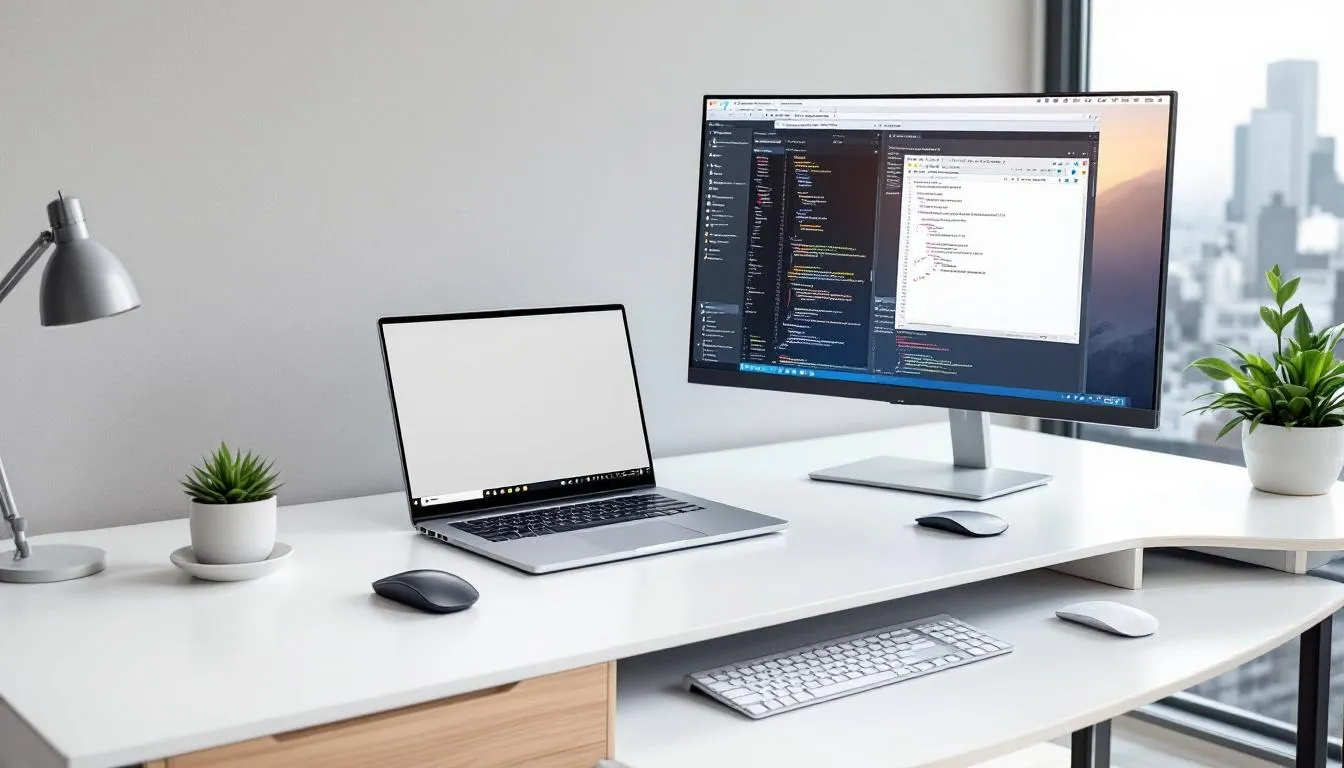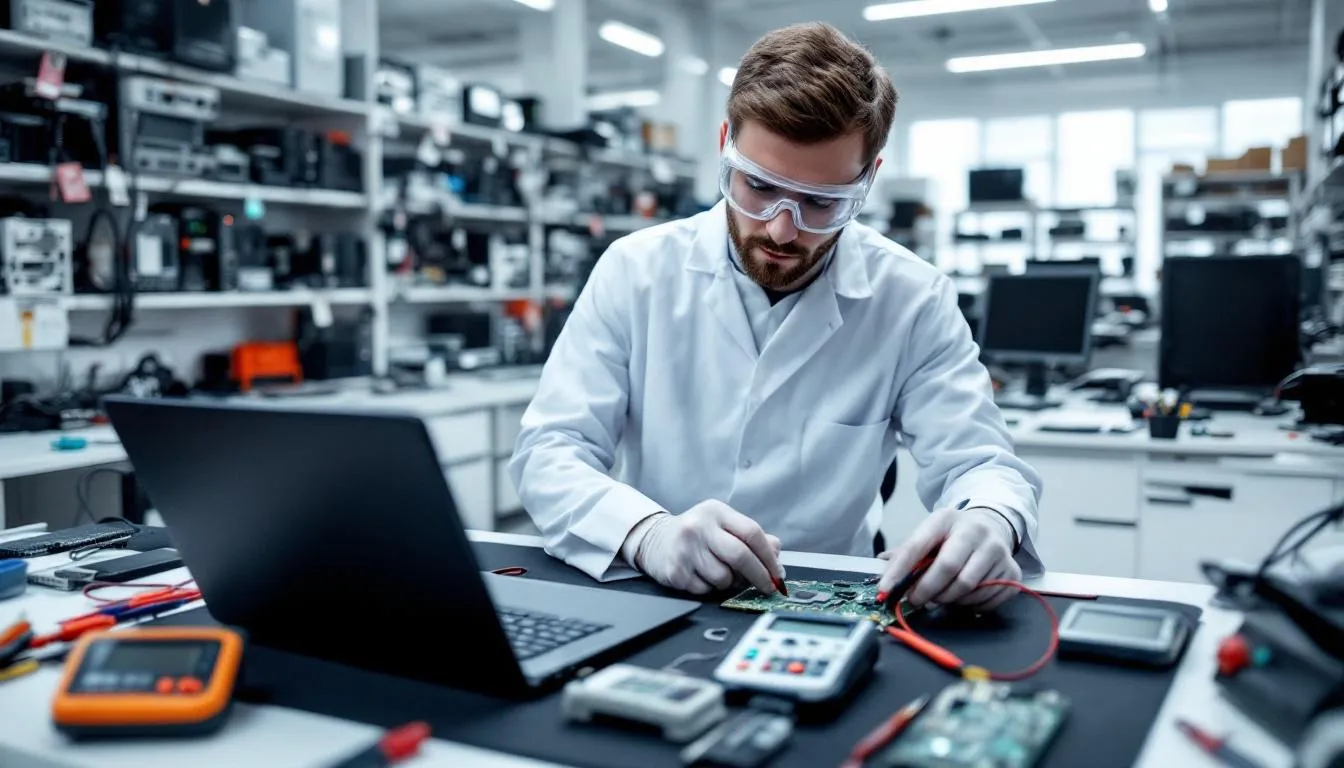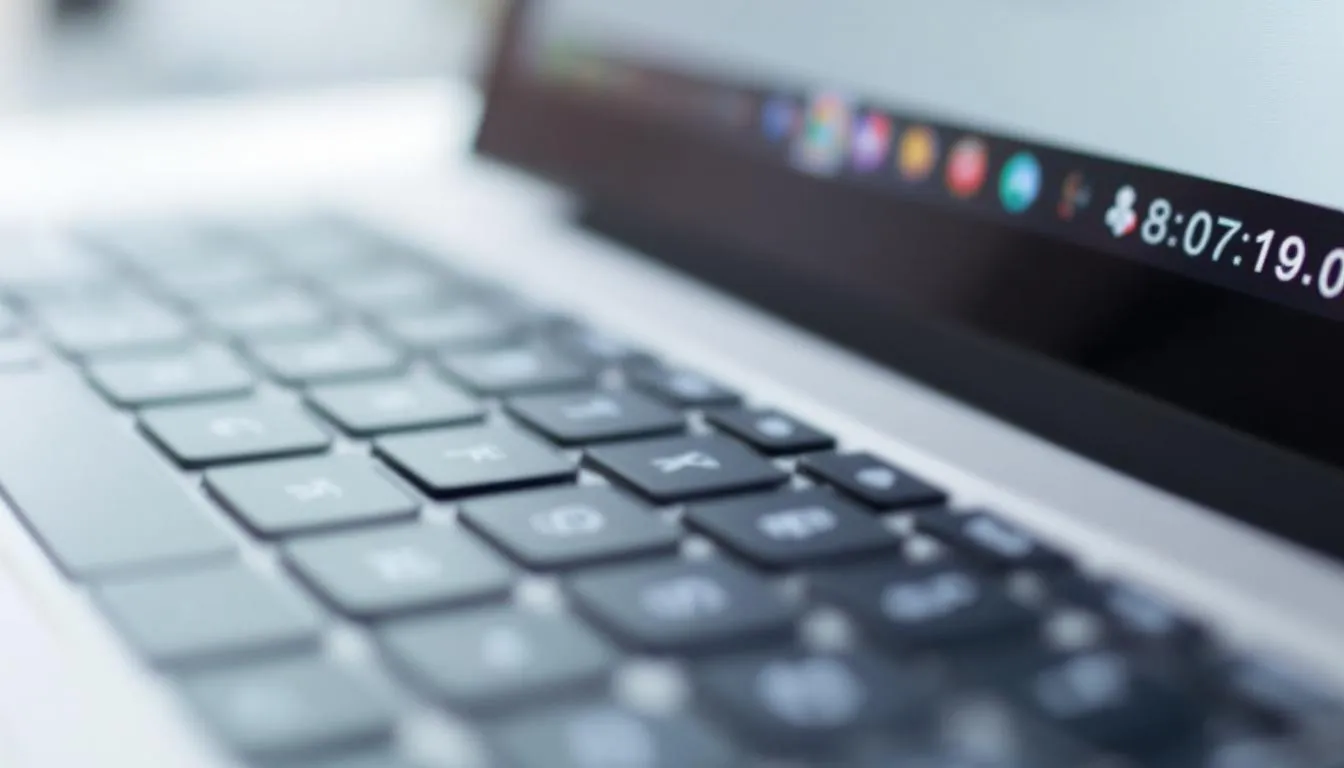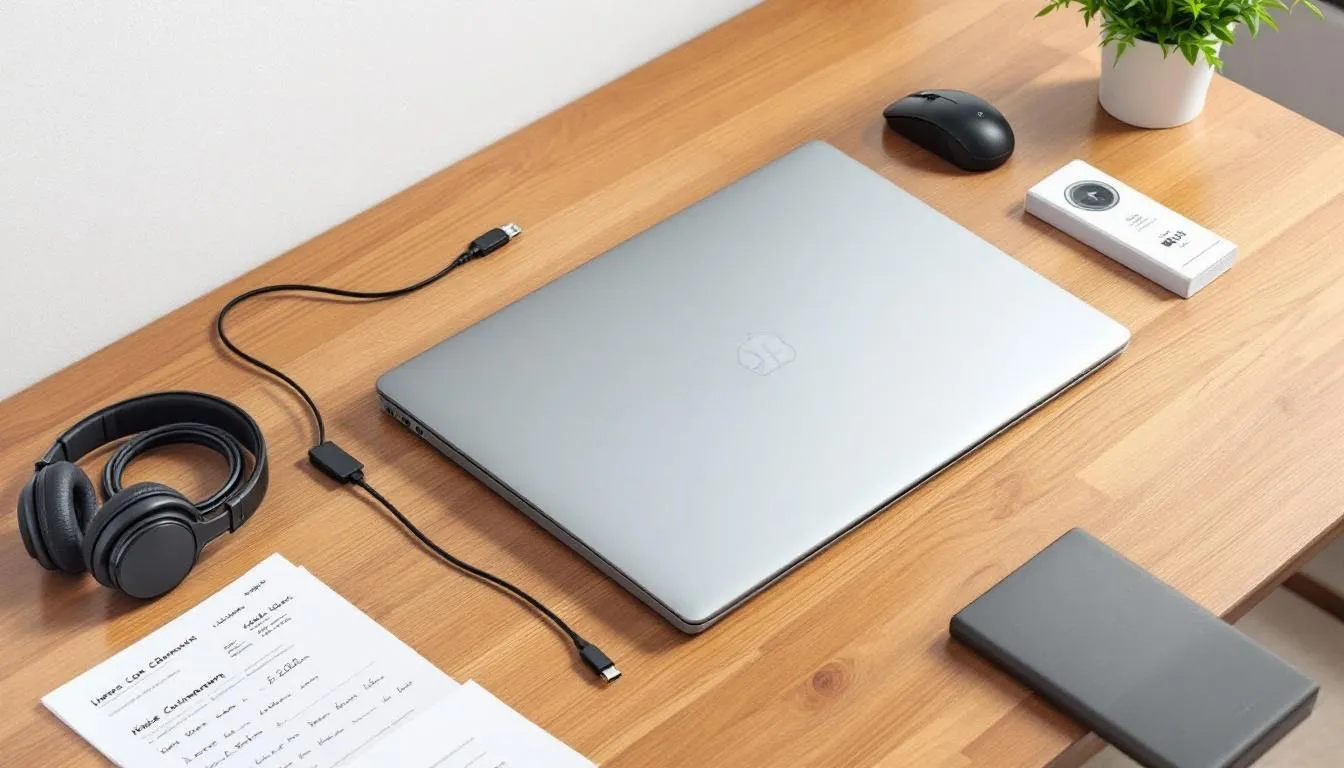In a world where new laptops can cost thousands, smart buyers are discovering a secret that saves 30-50% without sacrificing quality or performance. The refurbished laptop computer market has exploded to over $10 billion globally, with annual growth exceeding 11%. Yet many potential customers remain hesitant, unsure about the difference between a quality refurbished device and a simple used computer.
This comprehensive guide will transform you from a skeptical shopper into a confident buyer who understands exactly what to look for, where to shop, and how to secure the best value. Whether you’re a student on a tight budget, a business looking to equip your team cost-effectively, or an environmentally conscious consumer wanting to reduce your carbon footprint, refurbished laptops offer compelling benefits that new devices simply cannot match.

What is a Refurbished Laptop Computer?
A refurbished laptop computer is far more than a simple used device. It’s a professionally restored machine that has undergone comprehensive testing, repair, and certification by expert technicians to meet or exceed original manufacturer specifications. Unlike basic secondhand equipment sold “as-is,” every refurbished laptop passes through a rigorous restoration process designed to deliver like new performance and reliability.
The journey of a refurbished laptop begins with various sources. Customer returns often arrive with minimal use – sometimes unopened boxes returned within days of purchase. Ex-display models from retail stores provide another source, having served as demonstration units but rarely experiencing heavy usage. Corporate lease returns represent perhaps the most valuable category, as businesses typically maintain their equipment professionally before returning devices at contract end.
The refurbishment process itself follows strict protocols that would impress even the most quality-conscious buyer. Each device undergoes complete disassembly, allowing technicians to inspect every component from the motherboard to the smallest connector. Any worn or substandard parts face immediate replacement with new or certified reconditioned components. This attention to detail ensures that customers receive equipment that meets demanding performance standards.
Data security receives particular emphasis during refurbishment. Professional wiping follows standards like DoD and NIST 800-88, completely eliminating any trace of previous user information. Fresh operating system installations provide a clean slate, often including the latest updates and security patches that even some new computers might lack.
Benefits of Buying Refurbished Laptop Computers
The cost savings alone make refurbished laptops an attractive proposition, but the benefits extend far beyond your pocket. Industry analysis consistently shows price reductions of 30-50% compared to identical new models, with some premium configurations offering even greater savings. These aren’t minor discounts on outdated technology – you’re accessing current-generation processors, ample RAM, and modern features at a fraction of retail price.
Environmental benefits provide another compelling reason to choose refurbished equipment. The World Economic Forum reports that extending device lifecycles by just two years can reduce e-waste by 50% per device. When you purchase a refurbished laptop, you’re actively preventing functional technology from reaching landfills while reducing demand for new manufacturing. This action directly impacts your carbon footprint, as producing new computers requires significant energy and raw materials.
Performance-wise, a quality refurbished laptop delivers virtually identical capabilities to its new counterpart. Modern processors maintain their efficiency regardless of age, while SSD storage often performs better than when originally installed due to firmware improvements. Many refurbished units actually receive hardware upgrades during restoration, potentially offering better specifications than the original configuration.
Access to premium brands becomes suddenly affordable through the refurbished market. Dell Latitude series laptops, HP EliteBook models, and Lenovo ThinkPads – traditionally expensive when new – become accessible to budget-conscious buyers without compromising on build quality or features. You can enjoy the same robust construction, professional design, and reliable performance that corporations pay premium prices to secure.

Top Refurbished Laptop Computer Brands and Models
Dell dominates the refurbished laptop market with exceptional variety and proven reliability. The Latitude series stands out for business users, offering Intel Core processors ranging from i5 to i7 configurations paired with 13.3” to 15.6” Full HD displays. Storage options typically include SSD drives from 256GB to 512GB, providing responsive performance for demanding applications. Dell XPS models bring premium design and powerful specifications to the refurbished market, while Inspiron series devices offer excellent value for everyday computing needs.
HP’s contribution to the refurbished market centers around their EliteBook and ProBook series. These business-grade laptops feature robust construction, excellent keyboards, and comprehensive connectivity options. HP’s refurbishment program maintains high standards, often including warranty coverage that rivals new device protection. The brand’s focus on professional users means most refurbished HP laptops include features like fingerprint readers, TPM security chips, and enterprise-grade wireless capabilities.
Lenovo ThinkPad models represent the gold standard for refurbished business laptops. Known for exceptional keyboard quality and legendary durability, ThinkPads often show minimal wear even after years of corporate use. The brand’s modular design philosophy means many components can be easily upgraded or replaced, extending device life well beyond typical expectations. Popular models in the refurbished market include the T-series for balanced performance and X-series for ultraportable computing.
Apple MacBook models occasionally appear in the refurbished market, though availability varies significantly. When available, refurbished MacBooks offer substantial savings on devices known for retaining value and performance over extended periods. However, Apple’s own refurbished program often provides the most reliable source for certified pre-owned MacBook computers.
Quality Assurance and Testing Process
The testing process separating quality refurbished laptops from basic used equipment involves comprehensive 21-point inspections covering every aspect of device functionality. Certified technicians at authorized facilities examine hardware components systematically, testing everything from memory modules to wireless connectivity. This thorough approach ensures that only devices meeting strict performance criteria reach customers.
Hardware inspection begins with complete disassembly, allowing technicians to examine internal components for wear, damage, or contamination. Cooling systems receive particular attention, as dust accumulation can significantly impact performance and longevity. Keyboards face individual key testing to ensure consistent response, while trackpads undergo precision calibration. Display panels are checked for dead pixels, color accuracy, and brightness uniformity.
Component replacement follows manufacturer specifications, with worn items like batteries and keyboards receiving immediate attention when necessary. Many refurbishment facilities maintain relationships with component suppliers, ensuring replacement parts meet or exceed original equipment standards. This commitment to quality means customers often receive devices with newer components than originally installed.
Software installation represents the final phase of quality assurance. Fresh operating system installations eliminate any trace of previous use while ensuring all drivers and firmware receive current updates. Stress testing follows installation, verifying system stability under demanding conditions. Only devices passing all tests receive certification for sale, giving customers confidence in their purchase decision.

Warranty and Support for Refurbished Laptop Computers
Standard warranty coverage for quality refurbished laptops typically includes 12 months of parts and labor protection, providing peace of mind comparable to new device purchases. This limited hardware warranty covers manufacturing defects, component failures, and other issues that might arise during normal use. Reputable sellers stand behind their refurbishment process with comprehensive warranty terms that demonstrate confidence in their work.
Extended warranty options often reach 24 months from established refurbishment companies, offering additional protection for buyers seeking maximum security. These extended terms frequently include accidental damage protection, expedited repair services, and advance replacement options. The availability of extended coverage indicates the seller’s confidence in their refurbishment quality and customer service capabilities.
Return policies typically offer 14-day satisfaction guarantees, allowing customers to thoroughly evaluate their purchase without risk. This period provides sufficient time to test all functions, verify performance, and ensure the device meets expectations. Some sellers extend return periods during holiday seasons or offer restocking fee waivers to encourage confident purchasing.
Technical support availability varies among sellers but typically includes phone and email assistance for warranty-related issues. Many refurbishment companies maintain dedicated support teams familiar with their restoration processes and common customer questions. This specialized knowledge often results in more effective problem resolution compared to generic computer support services.
The warranty terms and support quality often serve as reliable indicators of refurbishment standards. Companies offering comprehensive warranties and responsive support typically maintain higher quality processes, as they must support their products long-term. This creates natural incentives for thorough testing and careful component selection during restoration.
What to Look for When Buying Refurbished Laptop Computers
Processor specifications form the foundation of laptop performance, making Intel Core i5 or i7 processors essential for optimal computing experience. These modern processors handle demanding applications efficiently while maintaining reasonable power consumption. Avoid older processor generations that may struggle with current software requirements or lack security features present in newer designs.
RAM requirements have evolved significantly, with 8GB representing the minimum for modern computing needs. This capacity supports multiple browser tabs, office applications, and background processes without performance degradation. Many refurbished laptops offer upgrade options, allowing cost-conscious buyers to start with adequate memory and expand later as needs grow.
Storage technology dramatically impacts daily user experience, making SSD drives strongly preferred over traditional hard disk drives. SSDs provide faster boot times, quicker application launches, and improved overall system responsiveness. While HDD storage offers larger capacities at lower cost, the performance benefits of SSD technology justify the investment for most users.
Display quality significantly affects user satisfaction, with Full HD resolution (1920×1080) providing clear, detailed visuals for both work and entertainment. Screen size preferences vary by intended use, but 13.3” to 15.6” displays offer excellent balance between portability and usability. Anti-glare coatings improve visibility in various lighting conditions, particularly important for mobile use.
Battery condition requires careful consideration, as batteries naturally degrade over time and usage cycles. Quality refurbishment processes often include battery testing and replacement when capacity falls below acceptable thresholds. However, buyers should inquire about expected battery life and replacement availability to avoid future disappointments.

Where to Buy Refurbished Laptop Computers
Manufacturer outlets like Dell Outlet and HP’s Renew program provide direct access to factory-refurbished equipment with full manufacturer backing. These programs typically offer the highest quality standards, comprehensive warranties, and genuine replacement parts. Dell Outlet, for example, processes thousands of returns and off-lease devices monthly through their certified facilities, ensuring consistent quality and reliability.
Specialized refurbishment companies with dedicated UK facilities processing 60,000+ items annually represent another excellent source for quality equipment. These companies focus exclusively on computer refurbishment, developing expertise and processes that often exceed manufacturer standards. Their volume allows for better component sourcing, more comprehensive testing, and competitive pricing structures.
Independent computer retailers with strong reputations, evidenced by Trustpilot ratings above 4.5 stars, can provide personalized service and local support. These smaller operations often specialize in specific brands or market segments, developing deep expertise that benefits customers. Local retailers also offer face-to-face consultation and hands-on evaluation opportunities before purchase.
Certification requirements serve as important quality indicators when evaluating sellers. Look for R2 (Responsible Recycling) certification, which ensures environmentally responsible processing and data security compliance. NAID AAA certification indicates adherence to strict data destruction standards, particularly important for business buyers concerned about information security.
Online marketplaces require careful seller evaluation, as quality varies significantly among individual vendors. Focus on sellers with extensive positive feedback, detailed product descriptions, and clear warranty terms. Avoid listings lacking specific technical details or warranty information, as these often indicate lower-quality refurbishment processes.
Pricing and Deals on Refurbished Laptop Computers
Expected price ranges vary by laptop category and specifications, but consistent patterns emerge across the market. Entry-level refurbished laptops with Core i3 processors and 4GB RAM typically cost £200-£400, suitable for basic web browsing and office tasks. Mid-range configurations featuring Core i5 processors, 8GB RAM, and SSD storage generally range from £400-£700, offering excellent value for most users.
Premium refurbished laptops with Core i7 processors, 16GB RAM, and large SSD drives command £700-£1200, still representing substantial savings compared to new equivalents. Business-grade models like ThinkPads or Dell Latitudes often maintain higher prices due to superior build quality and longer expected lifecycles.
Seasonal sales provide opportunities for additional savings, with January and August representing particularly active periods. Back-to-school promotions in late summer offer student-friendly pricing, while post-holiday sales clear inventory from the previous year. Black Friday and Cyber Monday events increasingly include refurbished technology, though availability may be limited.
Upgrade options for RAM and storage add value for technically capable buyers willing to perform installations themselves. Many refurbished laptops ship with minimal configurations that can be enhanced cost-effectively through aftermarket components. This approach allows buyers to reach desired specifications while minimizing initial investment.
Delivery options typically include free tracked shipping for orders above minimum thresholds, usually £100-£200. Express next-day delivery services cater to urgent needs, though additional costs apply. Some sellers offer collection services or local delivery in major metropolitan areas, providing flexibility for buyers preferring personal handover.
Refurbished vs New Laptop Computers: Making the Right Choice
Performance comparison between refurbished and new laptops reveals minimal differences in daily use scenarios. Modern processors maintain efficiency regardless of age, while SSDs actually improve through firmware updates often applied during refurbishment. The primary performance distinction lies in warranty coverage duration rather than actual capabilities.
Warranty considerations favor new laptops for buyers prioritizing maximum protection, as manufacturer warranties typically extend 1-3 years compared to 12-24 months for refurbished equipment. However, the cost difference often allows refurbished buyers to purchase extended warranties while still maintaining significant savings overall.
Value proposition analysis depends heavily on intended use cases. Students and casual users often find refurbished laptops meet their needs perfectly while preserving budget for other priorities. Business users requiring cutting-edge features or maximum warranty coverage might justify new device costs, though many corporations successfully standardize on refurbished equipment for cost control.
Environmental impact comparison strongly favors refurbished devices, as extending product lifecycles reduces manufacturing demand and e-waste generation. This benefit appeals particularly to environmentally conscious buyers seeking to minimize their carbon footprint without sacrificing functionality or reliability.
The decision ultimately balances cost savings, warranty preferences, feature requirements, and environmental considerations. For most buyers, quality refurbished laptops provide an excellent compromise that delivers premium technology at accessible prices while supporting sustainable consumption practices.

Conclusion
The refurbished laptop computer market offers compelling value for smart buyers willing to look beyond traditional retail channels. With cost savings of 30-50%, comprehensive warranty coverage, and environmental benefits that support sustainable technology consumption, refurbished devices provide an intelligent alternative to new computer purchases.
Quality refurbishment processes ensure that customers receive devices meeting demanding performance standards while enjoying significant cost advantages. From students managing tight budgets to businesses seeking efficient equipment solutions, refurbished laptops deliver reliable computing power without the premium price tag.
Success in the refurbished market requires informed decision-making based on processor specifications, RAM capacity, storage technology, and seller reputation. By focusing on certified refurbishers with strong warranty terms and quality testing processes, buyers can shop with confidence knowing their investment is protected.
The choice between refurbished and new laptops ultimately depends on individual priorities, but the evidence clearly demonstrates that quality refurbished devices offer exceptional value proposition. Whether you’re motivated by cost savings, environmental responsibility, or simply smart shopping principles, the refurbished laptop market deserves serious consideration for your next technology purchase.
Ready to find your perfect refurbished laptop? Use this guide to shop with confidence, compare options effectively, and enjoy premium technology at a fraction of the cost while supporting sustainable consumption practices that benefit both your pocket and the planet.







Add Comment